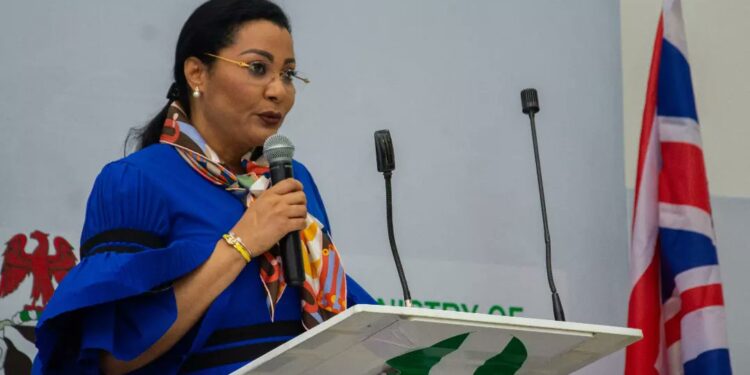The Minister of Industry, Trade, and Investment, Dr. Doris Uzoka Anite, has revealed that the ongoing #EndBadGovernance protests have resulted in economic sabotage valued at approximately N500 billion. In a post shared on her official X (formerly Twitter) handle, she expressed deep concern over the loss of lives and the extensive damages caused by the protests.
Dr. Anite highlighted that around N52 billion worth of goods were destroyed during the protests, with the death toll now exceeding 1,000 people. She emphasized that the looting and violence have significantly impacted businesses and entrepreneurs across Nigeria, causing severe setbacks to the economy.
She stated, “The loss of lives during the protests is saddening. My thoughts are with the families affected. The looting, resulting in billions lost, is a severe setback for our economy and entrepreneurs. Let’s honour those we’ve lost by striving for more peaceful and constructive dialogue.”
Background
The #EndBadGovernance protests began on August 1st, with demonstrators demanding that the government address the escalating cost of living and worsening economic conditions. The protests were sparked by rising inflation, which surged to 34.19% in June 2024, the highest in 28 years. Approximately 32 million people are currently facing severe food insecurity in the country.
In response to the protests, the federal government implemented various interventions, including cash transfers and food distribution to vulnerable households. The government also assured the public that stability would be restored in the short term if more time was granted for these measures to take effect.
While the initial days of the protest were largely peaceful, violence eventually erupted in some northern states, leading to the destruction of businesses, deaths, and significant property damage. Governors in states like Plateau and Kaduna imposed curfews in certain towns and cities to control the escalating violence.
Presidential Address
On the seventh day of the protests, President Bola Tinubu addressed the nation, urging the youth to end the bloodshed. He acknowledged the economic challenges brought on by the removal of fuel subsidies but stressed that the government was actively working on plans for a better future.
President Tinubu called on Nigerians to have faith in the government’s commitment to fulfilling its promises and prioritizing the well-being of the citizens. He assured the public that the hardships would be overcome, positioning Nigeria for greater success in the future.
Despite the President’s address, the protests continued, particularly in the northern regions, where demonstrators even waved Russian flags, a move seen as a challenge to Nigeria’s sovereignty.
Impact on Businesses
The protests led to widespread shutdowns of business activities across the country, with banks, offices, markets, and transport services being severely affected. Although the demonstrations lost momentum in the southern regions after the President’s speech, the recovery of business activities has been slow and gradual.











